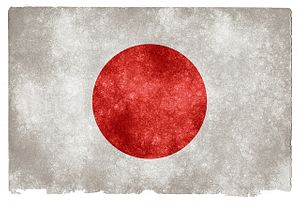Vice Minister for Health and Welfare Hiroshi Ueno announced his resignation following allegations he was seeking cash in return for inquiring on the status of pending visa applications. Earlier this month, Shukan Bunshun weekly magazine reported that Ueno consulted the Ministry of Justice to speed up visa procedures on behalf of Neo Career — a Tokyo-based recruitment agency.
The magazine says secret audio recordings of Ueno’s conversations with his former secretary expose him requesting a fee of 20,000 yen ($190 dollars) per application inquiry. Ueno who is serving his second term in the House of Representatives stepped down at the end of August despite denying receiving any illicit payments. While he admitted his voice was in the recording, he stressed visa consultations with the Ministry of Justice were done as a favor on behalf of an “acquaintance.”
The recruitment company is believed to have provided Ueno’s former secretary with 187 names of foreigners waiting for an outcome on their working visa submitted between February and June. In a statement released to the media, Ueno stated the publications report was “regrettable” and “there are no facts that I used my influence in violation of the law.” The motive for resigning was intended to prevent any “misunderstandings.”
As public suspicions escalated following the lack of explanation surrounding his resignation, Ueno held a press conference at LDP party headquarters last week apologizing to local supporters and to those around him. But as Prime Minister Shinzo Abe unveils his fresh cabinet reshuffle, the pressure to maintain a clean and a scandal-free image may have influenced Abe’s same-day approval for Ueno’s resignation.
With Japan’s labor shortage continuing to plague blue-collar industries, many companies are in desperate need of foreign laborers fast. Under the Abe administration the number of foreigners entering Japan as grown, with foreign residents exceeding 2 percent of the total population for the first time in history. However, the number of foreign students and workers violating visa requirements has prompted the Justice Ministry to intensify a crackdown on immigration controls — imposing tougher visa checks and examinations. Data shows that last year immigration officers rejected a record number of work visa applications for reasons such as providing misleading information or violating rules stipulated under a previous visa. In turn, Japanese companies are struggling to manage their workforce in light of the long delays and insecurity of guaranteeing work visas for foreign recruits.
Ueno began serving the Ministry of Health in October last year and was head of a working group studying industry groups and local communities in relation to the foreigner technical training program. Ueno’s previous working relationship with representatives from industry may have made him the first point of contact for companies experiencing prolonged visa delays. Meanwhile, it’s been pointed out that Ueno did not necessarily need to step down in the wake of no physical evidence a paper trail of money being collected.
Abe’s cabinet has been embroiled in a string of scandals involving senior cabinet members drawing unwanted attention to the administration’s lax attitude toward accountability. Ueno’s departure follows the resignation of Olympics minister Yoshitaka Sakurada and Ichiro Tsukada a senior vice land minister.

































